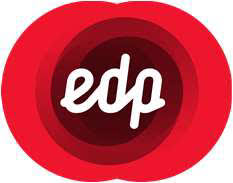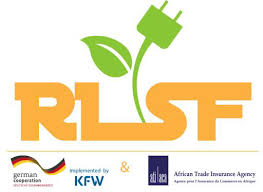The new Fund launched by the group will boost education, health and community projects in Kenya, Tanzania, Mozambique and Malawi, impacting the lives of 55,000 people.
EDP will support six sustainable and clean energy projects in East Africa through the A2E (Access to Energy) CSR Fund. In this first phase, 450 thousand euros will be applied to promote access to energy in remote rural areas without connection to the electricity grid, aiming to alleviate energy poverty in developing countries. These initiatives will impact 55 thousand people, of whom ten thousand will be impacted directly.
In total, 108 entities from around the world applied for the first edition of the Fund oriented for projects in Mozambique, Kenya, Tanzania and Malawi. The selected institutions, according to criteria such as social impact, partnerships, sustainability, potential for expansion and number of beneficiaries, work in the areas of education, health, water and agriculture, business and community, each one received financial support ranging from 25 thousand to 100 thousand euros and committing to implement their projects by the beginning of next year.
In Kenya, the Co-operative Bank Foundation and SAVIC Africa were selected. In Mozambique, support was given to UN-Habitat and Girl MOVE. In Malawi, the Energía Sin Fronteras Foundation was chosen and, in Tanzania, the Sustainable Investment and Development Initiative.
"This initiative reinforces once again EDP group's commitment to contributing to a more sustainable society, giving priority to the mitigation of electrical exclusion that still affects more than one billion people worldwide. Access to energy has the potential to play a revolutionary role in emerging countries, being an essential tool for a society to foster opportunities and equality", says António Mexia, president of EDP.
In addition to supporting social responsibility activities through this Fund, which has a global allocation of EUR 1 million and is expected to launch the second edition by the end of this year, EDP Group's A2E strategy also foresees the investment of EUR 12 million over the next three years in companies with sustainable solutions for universal access to energy. This bet was already materialized in 2018, with the first investment in the sector: the acquisition of a stake in SolarWorks!, a company with operations in Mozambique and that is dedicated to the commercialization of decentralized solar energy solutions.
Information on supported projects
The Co-operative Bank Foundation will install solar greenhouses with power of up to 100 kWp in irrigation systems in 12 schools in Kenya to ensure that there will be adequate supply of food throughout the year. In addition to access to energy for 6,000 people, the crops will be used to meet the nutritional needs of students, while the surplus will be sold in local markets enhancing agribusiness skills of students.
SAVIC Africa's OKAPI Green Energy project will build a 12 kWp photovoltaic mini-grid at Kakuma Refugee Camp in Kenya, with smart metering technology to provide electricity to 150 homes and 50 commercial clients, totaling 800 direct beneficiaries and 18,000 indirect ones. The goal is to improve access to health, education, income generation and entrepreneurship training.
The Girl MOVE Academy's "Energy for a Better Future" program will create a 30 kWp solar energy plant for ECOCampus and the institution's IT center in Mozambique, with the aim of increasing the number of training hours and contributing to the development of a new generation of female leaders.
UN-Habitat will build solar energy systems to supply 12 classrooms at two schools affected by natural disasters in Mozambique. In addition to promoting access to education for 1300 people, the initiative also covers the installation of emergency alert systems, internet access and charging stations, which could generate revenue for schools.
Energía Sin Fronteras Foundation will offer 25.9kWp photovoltaic panels to provide electricity for each of the five buildings at St. Mary's Rehabilitation Center in Malawi will be able to provide 24-hour medical care and clean water to 130 orphans with HIV as well as for outpatient and educational care for other children and for the elderly in the community. The project will impact a total of 2,800 people.
The Sustainable Investments and Development Initiatives (SIDI) will also allow 1500 fishermen and commercial and public facilities to access energy through a 10 kWp photovoltaic mini-network that will enable the generation, storage and distribution of power to a remote island in Tanzania, aiming to reduce poverty and to increase the annual income of this fishing community by 50%.
























